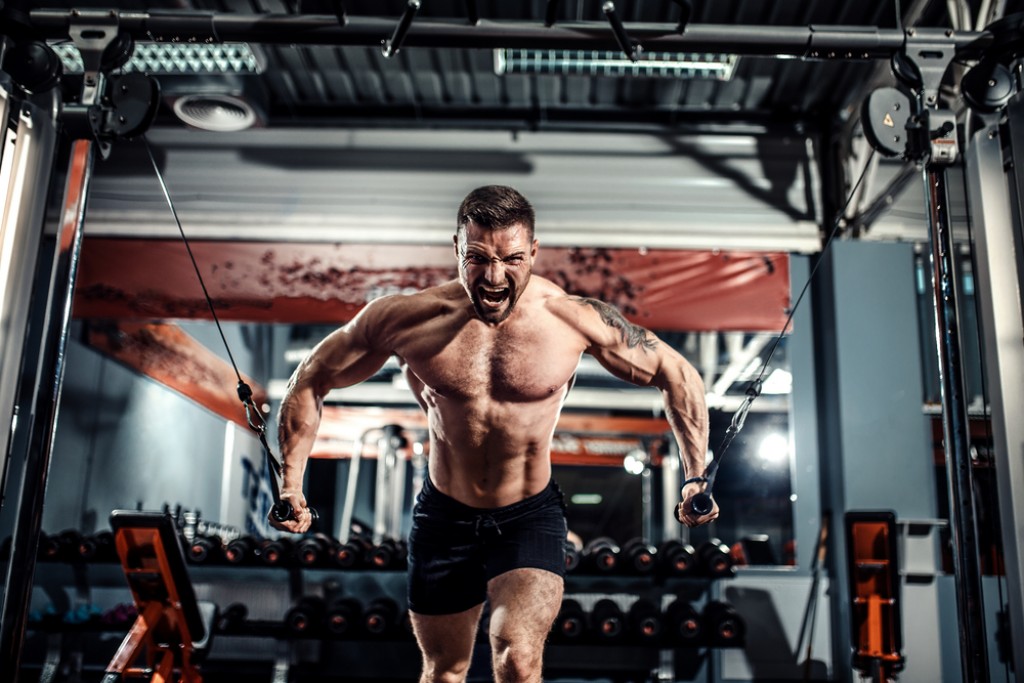Caffeine is more than just a pick-me-up. Read on to see how it can improve your lifts and enhance your results every time you hit the gym
Reason 1: More Energy
Caffeine works in the brain as a central nervous system (CNS) stimulant, so when we say energy, we mean alertness. Caffeine blocks certain receptors in the brain that increase levels of epinephrine, adrenaline, and dopamine.
Blocking these receptors in the brain gives you that drive you feel when you consume caffeine before a workout. This is how caffeine supplementation can make the difference between a great workout, and an OK workout.
Reason 2: Increased Strength
The research on caffeine shows that one dose can increase muscle strength, assuming the dose is high enough.[1] Three hundred milligrams (or more) of caffeine—the equivalent of about three cups of coffee—delivered in a single dose stimulates the nervous system.
Here's where the increase in strength comes in: The nerves that activate muscle fibers, once stimulated by caffeine, activate those muscle fibers with greater force. More force equals more strength, which is why caffeine can increase your strength during a workout.
Reason 3: More Endurance
Caffeine increases endurance in several ways. The first is by increasing fat burning during workouts. When you train with caffeine, you burn more fat. This spares muscle glycogen, which means you have more energy later in the workout, when you need it most.[2]
Another way caffeine can improve endurance is by boosting nitric oxide levels. That's right, research shows that caffeine can enhance vasodilation, the term for the widening of blood vessels. This allows more blood to flow to the muscles, which in turn delivers more oxygen and more nutrients, resulting in greater overall endurance.
Reason 4: Less Muscle Soreness
Believe it or not, research shows that caffeine works great for helping ease muscle soreness by altering your perceived exertion during your workouts.[3]
With less muscle soreness, you can go harder, perhaps banging out a few extra reps you probably wouldn't have gotten if that muscle soreness was too much. More reps equals more work done by your muscles, and that equals better results.
References
- Beck, T. W., Housh, T. J., Schmidt, R. J., Johnson, G. O., Housh, D. J., Coburn, J. W., & Malek, M. H. (2006). The acute effects of a caffeine-containing supplement on strength, muscular endurance, and anaerobic capabilities. The Journal of Strength & Conditioning Research, 20(3), 506-510.
- Tarnopolsky, M. A., Atkinson, S. A., Macdougall, J. D., Sale, D. G., & Sutton, J. R. (1989). Physiological responses to caffeine during endurance running in habitual caffeine users. Medicine and Science in Sports and Exercise, 21(4), 418-424.
- Doherty, M., & Smith, P. M. (2005). Effects of caffeine ingestion on rating of perceived exertion during and after exercise: a meta‐analysis. Scandinavian Journal of Medicine & Science in Sports, 15(2), 69-78.









